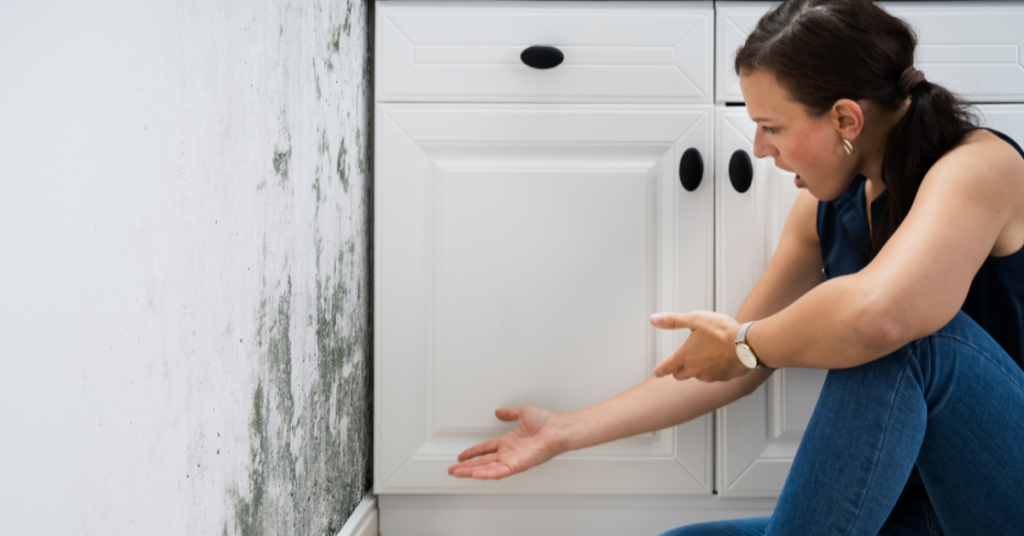Mold is more than just an unsightly nuisance; it’s a serious health hazard that can significantly impact your indoor air quality and overall well-being. Understanding the health risks associated with mold exposure and learning how professional mold remediation can enhance the air quality in your home can create a safer and healthier environment for you and your family.
Understanding Mold and Its Health Risks
Mold is a type of fungus that thrives in damp, humid environments. It reproduces by releasing tiny spores into the air, which can be inhaled and lead to various health problems. In South Florida, the prevalence of mold in homes is a significant concern, with studies showing that nearly 70% of homes in the region experience mold issues at some point. The high humidity levels, often exceeding 75%, and frequent rainfall create the perfect breeding ground for mold, making it a common problem for homeowners in this area. This widespread presence of mold highlights the importance of understanding and addressing mold-related health risks.
Here are some common health risks associated with mold exposure:
- Respiratory Issues: Mold spores can irritate the respiratory system, leading to symptoms like coughing, wheezing, and shortness of breath. People with asthma or other respiratory conditions may experience exacerbated symptoms and increased frequency of attacks.
- Allergic Reactions: Many individuals are allergic to mold spores. Exposure can cause symptoms such as sneezing, runny nose, red eyes, and skin rashes. In severe cases, mold exposure can lead to more serious allergic reactions, including anaphylaxis.
- Infections: Certain types of mold, such as Aspergillus, can cause infections, particularly in individuals with weakened immune systems. These infections can be serious and require medical attention.
- Toxic Effects: Some molds produce mycotoxins, which are toxic substances that can cause neurological and immunological problems. Symptoms of mycotoxin exposure include headaches, fatigue, dizziness, and even cognitive issues.
- Increased Susceptibility in Kids and the Elderly: Children and the elderly are more susceptible to mold-related health issues, especially children. Their developing or weakened immune systems can make them more vulnerable to respiratory problems, allergies, and other complications caused by mold exposure.
The Importance of Mold Remediation
Given the potential health risks, addressing mold problems promptly and effectively is crucial. Professional mold remediation involves a series of steps to identify, remove, and prevent mold growth, significantly improving indoor air quality. Additionally, continued mold growth can cause your home to lose value and damage expensive building components like the HVAC system, ductwork, and wood framing. The faster mold issues are taken care of, the less you will be financially impacted, saving on costly repairs and preserving your home’s value.
Here’s how it works:
- Inspection and Assessment: A thorough inspection helps identify the extent and type of mold present. Professionals use specialized equipment to detect mold even in hidden areas, ensuring a comprehensive assessment.
- Containment: To prevent mold spores from spreading during the cleanup process, affected areas are contained using physical barriers and negative air pressure techniques. This step is crucial to protect the rest of your home from contamination.
- Removal: Mold-infested materials, such as drywall, insulation, and carpeting, are safely removed and disposed of. Non-porous surfaces are cleaned using antimicrobial treatments to eliminate any remaining mold spores.
- Air Filtration: High-efficiency particulate air (HEPA) filters are used to capture airborne mold spores during and after the remediation process. This step ensures that the air in your home is thoroughly cleaned and free from contaminants.
- Restoration: After mold removal, any damaged areas are restored to their original condition. This may involve repairs, painting, and replacing materials like drywall or carpeting.
Preventing Future Mold Growth
Mold remediation not only addresses current mold problems but also helps prevent future growth. This is especially important in regions like South Florida, where the warm, humid climate creates an ideal environment for mold to thrive. Homes in South Florida are particularly susceptible to mold growth due to the frequent rain, high humidity levels, and occasional flooding. Therefore, taking proactive measures, as well as regular inspections and maintenance, are essential to keep your home mold-free and maintain a healthy living environment.
Here are some tips to help maintain a healthy balance in your home:
- Control Humidity: Keep indoor humidity levels below 60%, ideally between 40-50%. Use dehumidifiers and air conditioners to manage moisture levels.
- Fix Leaks: Promptly repair any leaks in roofs, walls, or plumbing to prevent water accumulation.
- Ventilation: Ensure proper ventilation in areas prone to moisture, such as bathrooms, kitchens, and basements.
- Regular Inspections: Conduct regular inspections, especially in areas where mold is likely to grow, and address any signs of mold promptly.
Mold exposure poses significant health risks, but professional mold remediation can greatly improve your indoor air quality, creating a healthier living environment. By addressing mold problems promptly and taking preventive measures, you can safeguard your home and well-being. If you suspect mold in your home, don’t hesitate to contact a local restoration professional to ensure a thorough and effective solution.
Remember, maintaining a balanced fungal ecology is key to a healthy home. Breathe easier and live better by prioritizing your indoor air quality today.

